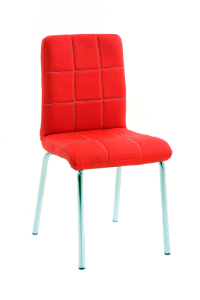Information contained in this publication is intended for informational purposes only and does not constitute legal advice or opinion, nor is it a substitute for the professional judgment of an attorney.
 In a much anticipated decision, a federal judge in California's Southern District ruled last week that CVS Pharmacy was not required to provide its cashiers with seats to use while operating cash registers. The plaintiff is a former customer service representative (“clerk/cashier”) at CVS who filed a lawsuit on behalf of all California customer service representatives alleging that CVS violated Wage Order 7–2001, section 14(A) when it failed to provide its clerks/cashiers with suitable seats during the performance of their job duties. Section 14 of Wage Order 7–2001 provides:
In a much anticipated decision, a federal judge in California's Southern District ruled last week that CVS Pharmacy was not required to provide its cashiers with seats to use while operating cash registers. The plaintiff is a former customer service representative (“clerk/cashier”) at CVS who filed a lawsuit on behalf of all California customer service representatives alleging that CVS violated Wage Order 7–2001, section 14(A) when it failed to provide its clerks/cashiers with suitable seats during the performance of their job duties. Section 14 of Wage Order 7–2001 provides:
- All working employees shall be provided with suitable seats when the nature of the work reasonably permits the use of seats.
- When employees are not engaged in the active duties of their employment and the nature of the work requires standing an adequate number of suitable seats shall be placed in reasonable proximity to the work area and employees shall be permitted to use such seats when it does not interfere with the performance of their duties.
In ruling on the motion for summary judgment, the court first considered the interplay between subsections A and B, and ultimately held that the two subsections were mutually exclusive. In doing so, the court rejected the plaintiff's argument that the phrase “nature of the work” refers to any particular duty that an employee performs during the course of her work. Instead, the court agreed with the defendant that the “nature of the work” performed by an employee must be considered in light of that individual’s entire range of assigned duties in order to determine whether the work permits the use of the seats or requires standing. It is not enough to simply look at certain tasks in isolation to determine whether those tasks could be performed while seated, the court held. Instead, the court's inquiry was whether or not the job as a whole permitted the use of a seat or required standing. The court held that if the nature of the work requires standing, subsection B applies.
In determining the nature of the work for a clerk/cashier at CVS, the court noted that it was undisputed that many of the duties at issue required employees to stand while performing them (i.e., stacking, helping customers with locating items, sweeping or other cleaning, retrieving items from a high shelf, and retrieving photographs or cigarettes from other parts of the store). In fact, the plaintiff herself testified that many of the tasks she performed could not be performed while seated. The court also found it appropriate to consider the employer’s “business judgment” in attempting to discern the nature of an employee's work. While the court did not go so far as to find that CVS's business judgment was necessarily entitled to deference, the court did find that the expectation that the majority of duties would be performed while standing was relevant to understanding the nature of a clerk/cashier's work. The undisputed facts confirmed that CVS expected its employees to place a premium on customer service and in doing so trained its employees to be ready to perform any one of a multitude of job duties that required being on their feet. The plaintiff's own experience confirmed the standing requirement as she was instructed that she would be required to stand while operating a cash register during her job interview.
The court ultimately concluded that if the majority of employees’ assigned duties must be performed while standing, and the employer expects and trains employees to stand while performing their duties, the “nature of the work” requires standing. When applied to the plaintiff, the court concluded that CVS need not comply with subsection A as the nature of the work of a clerk/cashier at CVS does in fact require standing.
While this decision is cause for cautious optimism for employers facing seating lawsuits, employers should be mindful of the recent decision in Garvey v. Kmart Corp. by a federal judge in California's Northern District, finding that disputed facts existed regarding the nature of the plaintiffs’ work, precluding summary judgment.
Photo credit: tamergunal

